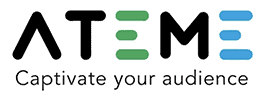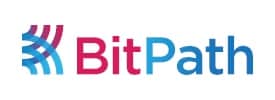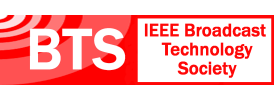- About
- Members
- Sponsors
- Subcommittees
- Technical Documents
- News
- Events
- Spotlight ATSC 3.0
- Contact Us
- Member Login
- Member Meetings
- Advanced Search
Search Site
Member Links
- About
- Members
- Sponsors
- Subcommittees
- Technical Documents
- News
- Events
- Spotlight ATSC 3.0
- Contact Us
- Member Login
- Member Meetings
- Advanced Search
ATSC Veterans Headline SMPTE ATSC 3.0 Course
Posted on August 4, 2020 in ATSC News
ATSC luminaries Glenn Reitmeier, Aldo Cugnini, and Dave Siegler are preparing a new course offered by the Society of Motion Picture Engineers (SMPTE), and the organization is now offering virtual classes at a 50% discount. Through the six-module course, SMPTE will:
- Guide participants through a high-level system overview
- Explain new video and audio capabilities and how they will work with smart Applications
- Explain the basic principles and advanced techniques of audio and video compression
- Explain how internet protocols have been adapted to broadcasting
- Explain the new digital transmission systems and its capabilities to send multiple bitstreams with a flexible choice of data rates and reception robustness, and
- Summarize the new features and capabilities that the system provides.
More information, including registration, can be found here. THE STANDARD discussed the new SMPTE course with Director of Education Joel Welch
What is SMPTE’s education program, in general?
Welch: SMPTE’s education programs are designed to provide opportunities to learn about deep technical topics that are relevant to the Media and Entertainment industry. Our offerings have been virtual for over a decade to enable individuals from around the world to access our educational opportunities. SMPTE virtual courses are designed with the working adult in mind. They are built to align with accepted adult learning principles and are flexible in nature.
How will the ATSC 3.0 class work, logistically?
Welch: SMPTE Virtual Courses are somewhat different from many other online learning programs. First, this course utilizes several learning methodologies, including independent-study lessons, learning reinforcement activities/assignments, an online discussion forum, quizzes, exams, and instructor-led coaching sessions (which are recorded for your convenience) to further support your learning. You have the freedom to work through the lessons at your convenience for the duration of the entire course. During any given week, course participants are asked to go through the narrated lesson, make a first attempt at the associated quiz and assignment, and post questions in the discussion forum. Once per week a live online instructor coaching session is scheduled to allow participants to ask specific questions and for the instructor to reinforce the more complex topics in the module. Then participants can go back and try the quizzes and assignments again. For participants who earn a course average score of 70% or higher, a “Certificate of Achievement” is issued. This certificate comes in a digital form which can be printed or posted on LinkedIn.
Who is a good candidate to take the course?
Welch: Good candidates include broadcast engineers and technologists who need to understand the end-to-end architecture of a typical ATSC 3.0 implementation.
How many students can take the course?
Welch: There is no official limit, but we try to keep course sizes below 30 to allow for sufficient individual attention by the instructor, if needed.
ATSC 3.0 is a big topic. Is there any particular area of focus or area that SMPTE is particularly excited about?
Welch: SMPTE is excited about the opportunity to help members of the broadcast industry learn about this game changing transformative broadcast system. We are also excited to have three of the industry’s most knowledgeable subject matter experts developing and delivering the course.
Posted in ATSC News
News Categories
News Archives
Subscribe
Subscribe to The Standard, our monthly newsletter. Learn More
Join ATSC
ATSC is a membership organization with both voting and observer categories. Voting members include corporations, nonprofit organizations, and government entities, and they participate actively in the work of ATSC. Observers are individuals or entities not eligible to be a voting member.
Subscribe to our Newsletter
Subscribe to The Standard, our monthly newsletter, to stay up-to-date with ATSC news and events around the world.
Site Links
Contact Us
Advanced Television Systems Committee, Inc.
1300 I Street NW, Suite 400E
Washington, DC 20005
Do you have questions about ATSC?
About ATSC
The Advanced Television Systems Committee, Inc., is an international, non-profit organization developing voluntary standards and recommended practices for digital terrestrial broadcasting. ATSC member organizations represent the broadcast, broadcast equipment, motion picture, consumer electronics, computer, cable, satellite, and semiconductor industries. ATSC also develops digital terrestrial broadcasting implementation strategies and supports educational activities on ATSC standards.
© 2025 ATSC





































